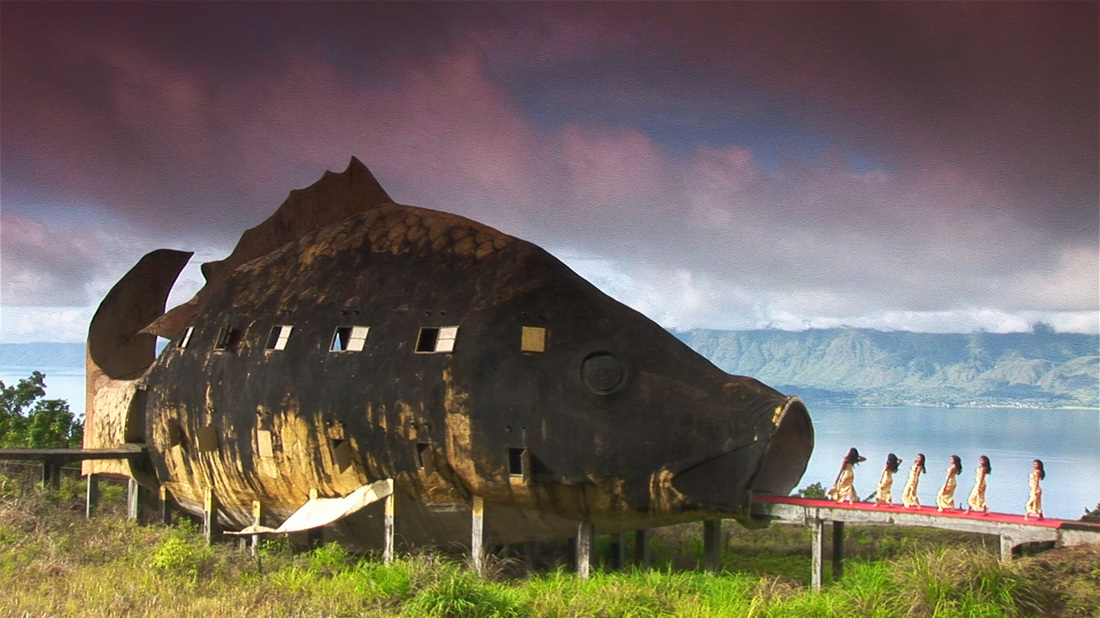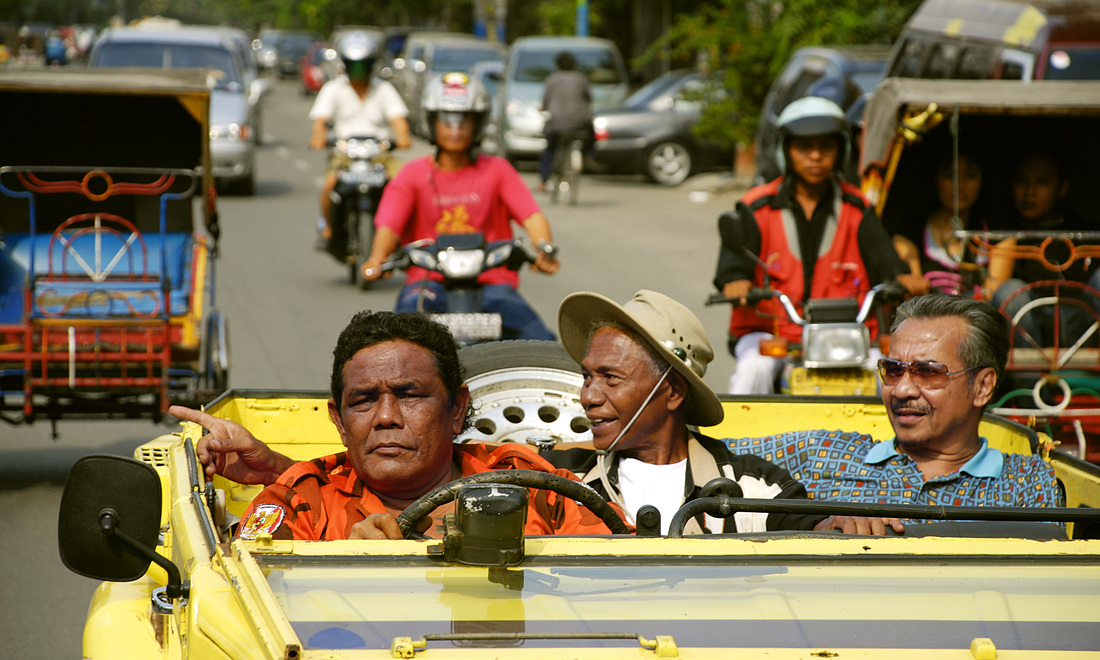I’ve run out of adjectives to describe The Act of Killing. It is paralyzing. Terrifying. Intimate. Humorous. Depressing. Horrifying. Shocking. Awe-inspiring. Mind-bending. Awful. Unbelievable.
To understand this film (or even this review) in its entirety, a good deal of background knowledge is necessary. In 1965, the Indonesian military overthrew its democratically elected government. Using gangsters and paramilitaries, they attempted to wipe out all who opposed them and anyone accused of being a communist or a communist sympathizer. Between 500,000 and one million people were killed. Many of the thousands of gangsters and paramilitaries who actually carried out these killings are still in power.
Filmmaker Joshua Oppenheimer went to Indonesia to talk to a few of these men, focusing on one aging gangster named Anwar Congo. Since these men are still in power, they don’t see the need to try to deny or apologize for the atrocities they committed. Instead, they boast about them. They detail how many people they’ve killed, where they killed them, how they killed them, even the easiest and most efficient ways to do so.
Here’s where it gets crazy. Oppenheimer asked Congo and a few others to—get this—reenact the things they did in whatever cinematic style they chose. And they agreed. Happily.
The result is one of the most unsettling, bone-chilling, unforgettably disturbing pieces of cinema I’ve ever seen.
The premise alone raises a million different questions. Why would these men, who committed unthinkable atrocities to thousands of people, choose to revisit these awful things? Why are these men still in power? What does that mean for Indonesia? Could this happen again? The film analyzes such an awful, awful event in a nation’s history on a lot of different levels. He looks at Indonesia on a macro level, showing how no aspect of government or economy has really survived unscathed. He looks at the average Indonesian villager, applauding the very people who carried out the genocide only five decades ago.
As the film progresses, the line begins to blur between what’s real and what’s an act. The man being interrogated and accused of being a communist, shivering in fear, with tears and snot pouring down his face—it’s just for the film, right? Or is he genuinely terrified to be reenacting a scene his family must actually have been through 50 years earlier? The little girl, still crying after the cameras have stopped filming the scene of fires and destruction deep in the jungle with hundreds of villagers—what could she possibly be thinking?
Then things get weird. Like, really, really weird. Anwar starts to act out his nightmares revolving around the things he’s done. His friend, in a dress and fabulous makeup, cuts off his head and licks the blood from the stump where his neck was. They delve deep into their memories, their emotions. They put themselves in the place of their victims. A grand musical number in front of a waterfall, a gritty noir-style detective investigation…these things take on a different meaning. And the grand irony is that by acting these situations out, these scenarios that they really went through in real life—by making them fictional, they become more real. I won’t say if Anwar and the others realize what they’ve done, because I legitimately didn’t know if they would. But I will say this: the last 20 minutes are some of the most haunting I’ve ever witnessed. They left me reeling. I don’t wish to watch them again.
What makes The Act of Killing so powerful is that there is no narration, no talking heads explaining the characters’ motivations. Everything we see is the product of Anwar and his friends. There’s next to no involvement from Oppenheimer on-screen. We’re watching these men explain what they did, how they’re dealing with it, and what they choose to do about it. We don’t need any interviews with outside experts to realize what monsters these men are, and watching their transformation as the film progresses is fascinating and mesmerizing.
The Act of Killing is a difficult film to talk about just because nothing like it has ever been done before. It’s a documentary, yes, but it feels bigger than that. It is not a film one enjoys watching, not by any stretch of the imagination, but it’s one of the most powerfully affecting films in existence. It is not just the most audacious film of 2013. It’s this year’s best documentary, and one of the best ever made.
Grade: A+


 RSS Feed
RSS Feed
